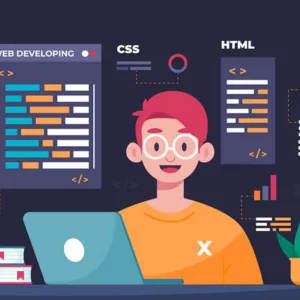Engineering education is developing rapidly taking up technological advancements to enhance learning outcomes. From basic tools to cutting-edge machinery technical equipment plays a crucial role in shaping the skill sets of future engineers.
Importance of Technical Equipment in Engineering Education
Technical equipment serves as a bridge between theoretical knowledge and practical application. Through experimentation and problem solving using equipment like 3D printers CNC machines and simulation software students gain invaluable skills applicable to real world scenarios.
Categories of Technical Equipment
Basic Tools
Basic tools such as soldering irons multi meters and oscilloscopes are fundamental for conducting experiments and projects in various engineering disciplines.
Advanced Machinery
Advanced machinery includes sophisticated equipment like robotic arms laser cutters and virtual reality simulators.
By engaging with equipment in laboratory settings students learn to analyze data iterate designs and communicate effectively mirroring the processes encountered in professional environments.
Interactive sessions involving equipment demonstrations workshops and project based assignments create an immersive and dynamic educational environment.
Challenges in Implementing Technical Equipment
Despite its numerous benefits integrating technical equipment into engineering education poses certain challenges. Limited funding inadequate infrastructure and a lack of trained personnel can hinder the effective utilization of equipment. Additionally keeping up with rapidly evolving technology requires constant updates and maintenance adding to the logistical complexities.
Solutions to Overcome Challenges
Addressing these challenges requires a multifaceted approach. Institutions can seek partnerships with industry stakeholders to secure funding and access to state of the art equipment. Investing in faculty development programs ensures educators are proficient in utilizing and maintaining technical equipment. Moreover adopting flexible curriculum frameworks facilitates the seamless integration of new technologies into coursework.
Examples of Technical Equipment Used in Engineering Education
Various technical equipment finds applications across engineering disciplines. For instance 3D printers are utilized in mechanical engineering for rapid prototyping while environmental engineering programs utilize sensors for monitoring air and water quality. Robotics laboratories often feature programmable kits for hands on experimentation in automation and control systems.
Future Trends in Technical Equipment for Engineering Education
Technical equipment for engineering education is marked by innovation and adaptability. Emerging technologies such as artificial intelligence Internet of Things IoT and augmented reality are poised to revolutionize learning experiences. Virtual laboratories remote access to equipment and personalized learning platforms are expected to become increasingly prevalent catering to diverse learning styles and preferences.
Cost Considerations and Budgeting
While the benefits of technical equipment are undeniable institutions must carefully consider the costs involved. Budget allocation should prioritize equipment that aligns with educational objectives and industry demands. Strategies such as equipment sharing between departments leasing options and bulk purchasing discounts can help optimize resource utilization and minimize financial burden.
Collaboration with Industries
Collaboration between educational institutions and industries is vital for ensuring the relevance and applicability of technical equipment. Industry partnerships provide access to cutting edge technology internship opportunities and guest lectures by industry experts. Such collaborations bridge the gap between academia and industry facilitating seamless transitions for students into the workforce.
Training and Maintenance of Equipment
Effective utilization of technical equipment necessitates adequate training and maintenance protocols. Institutions must invest in continuous professional development for faculty members to stay abreast of technological advancements. Additionally establishing robust maintenance schedules and troubleshooting protocols ensures equipment longevity and minimizes downtime optimizing the return on investment.
Impact of Technical Equipment on Career Opportunities
Proficiency in utilizing technical equipment enhances students’ employability and opens doors to diverse career opportunities. Employers value candidates with hands on experience and practical skills gained through exposure to technical equipment. Whether pursuing careers in research product development or consultancy graduates equipped with technical expertise are well positioned to thrive in the competitive job market.
Case Studies of Successful Implementation
Several institutions have successfully integrated technical equipment into their engineering programs yielding tangible benefits for students and faculty alike. Case studies showcasing innovative teaching methodologies collaborative projects and industry partnerships serve as valuable benchmarks for institutions embarking on similar initiatives. From small scale experiments to large scale deployments these demonstrate the transformative impact of technical equipment on engineering education.
As engineering education continues to evolve the demand for technical equipment grows. Here we delve deeper into some aspects that are pivotal in understanding the role of technical equipment in engineering education.
How Does Technical Equipment Benefit Students?
Technical equipment offers students hands on experience allowing them to apply theoretical knowledge to practical scenarios. This experiential learning fosters a deeper understanding of engineering principles and enhances problem solving skills. Additionally exposure to advanced machinery familiarizes students with industry standard tools giving them a competitive edge in the job market.
Final Word
In technical equipment plays a crucial role in shaping the future of engineering education. By providing students with hands on experience fostering practical skills development and bridging the gap between academia and industry technical equipment enriches the learning experience and prepares students for successful careers in engineering. Despite the challenges associated with implementation the benefits far outweigh the obstacles making the integration of technical equipment a worthwhile investment for institutions committed to delivering high quality engineering education.





